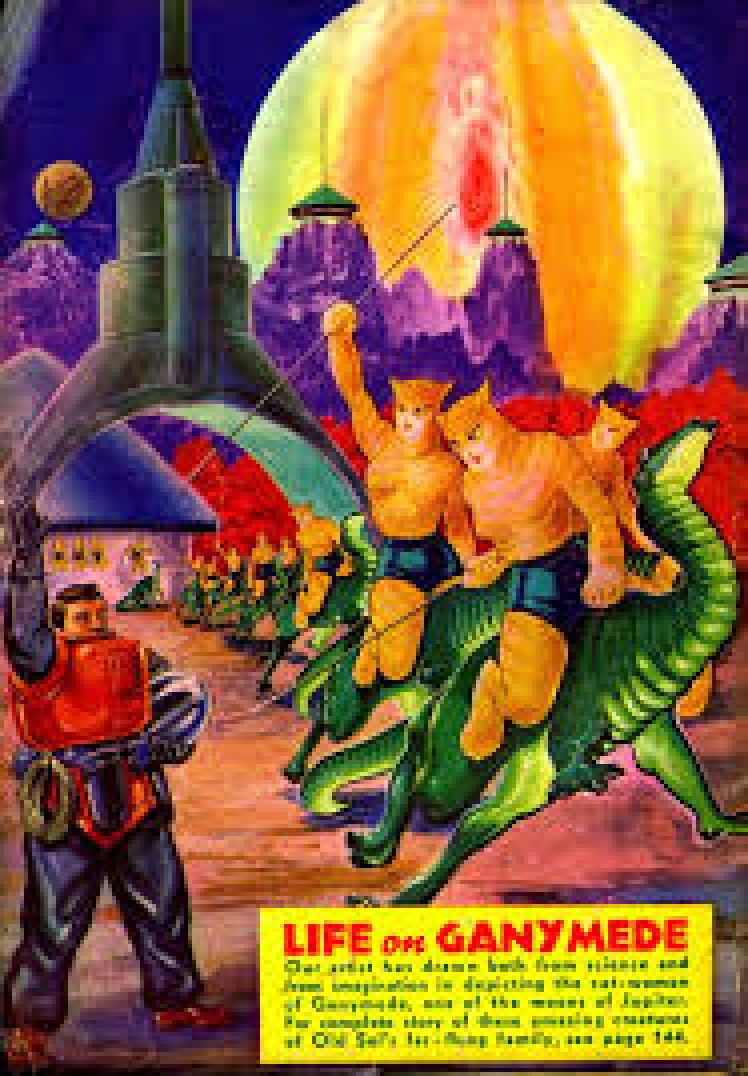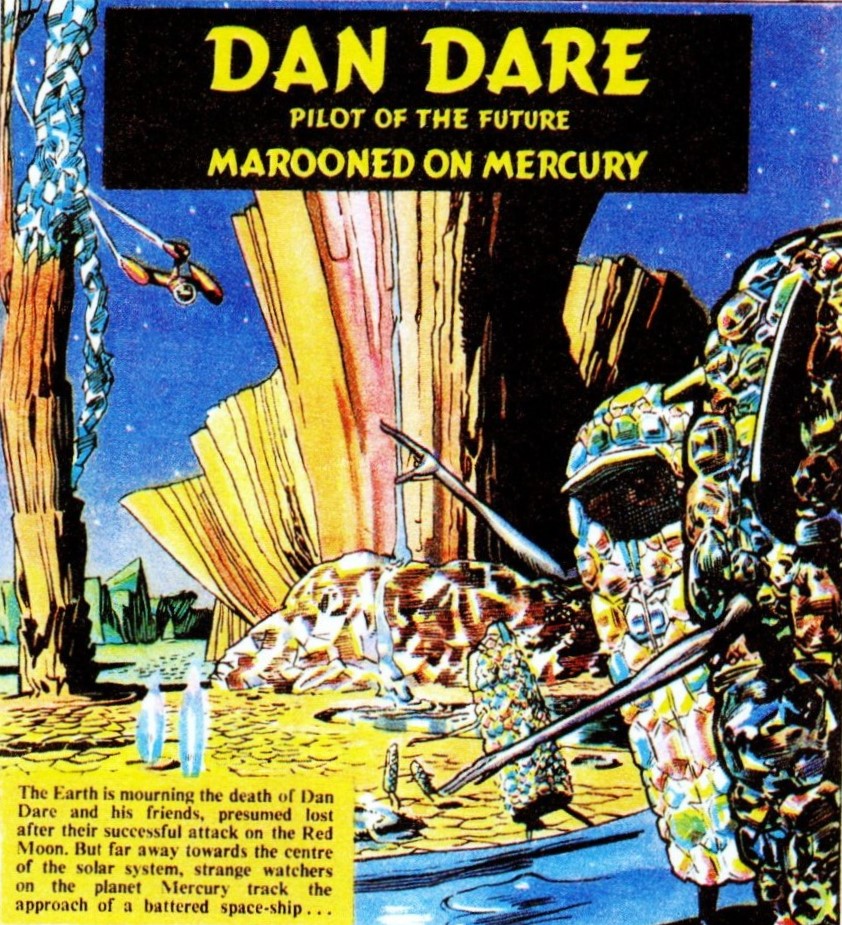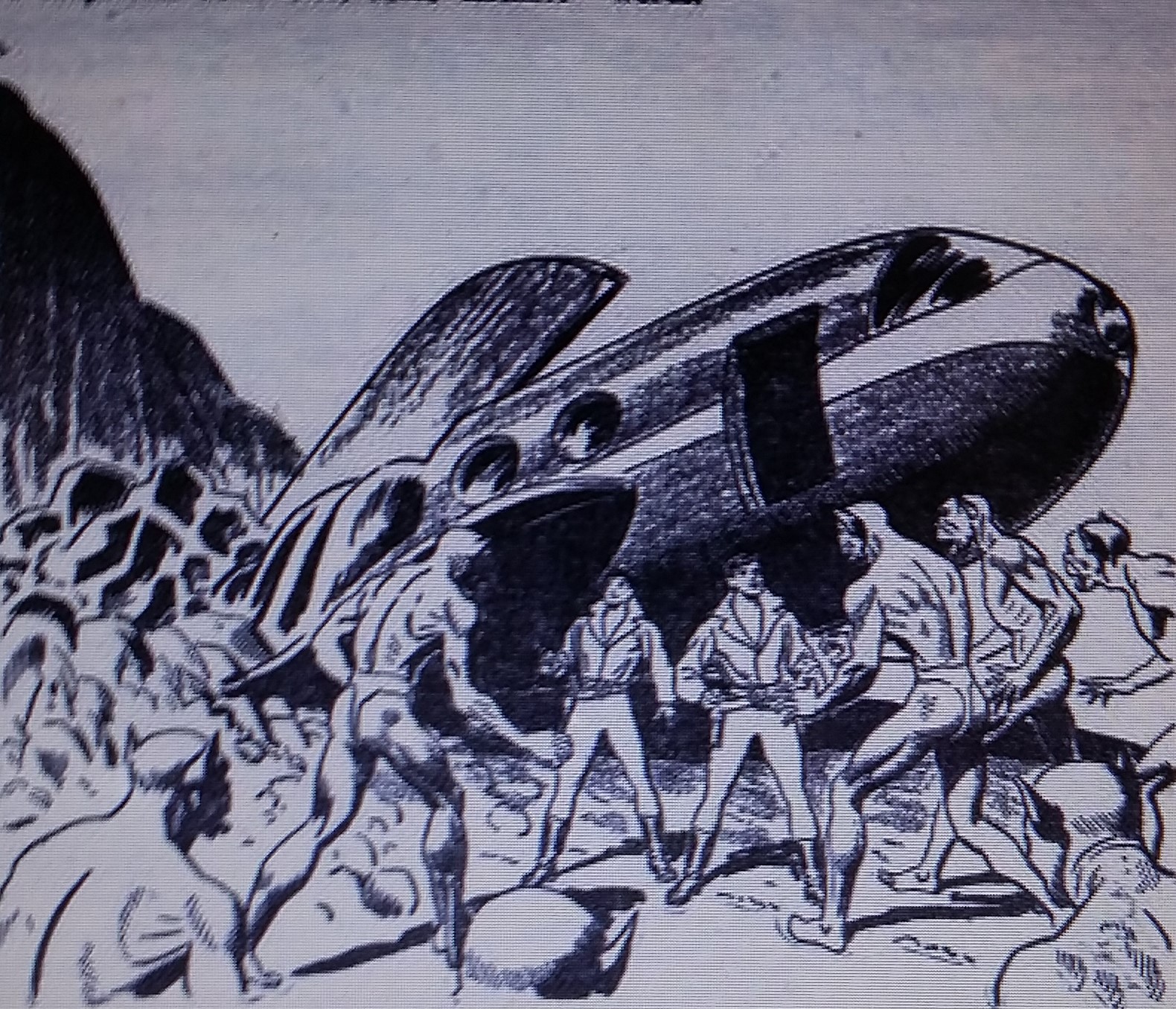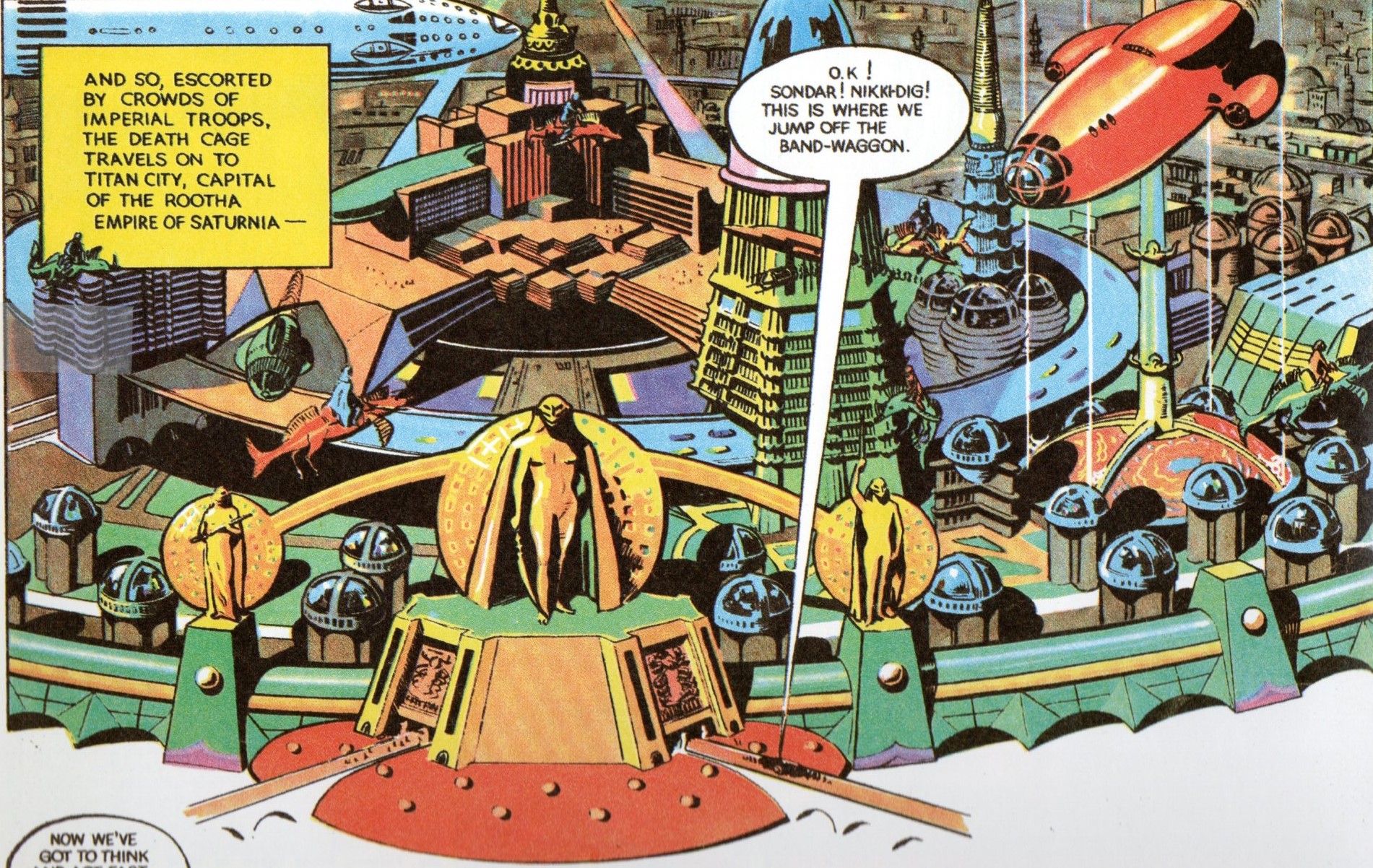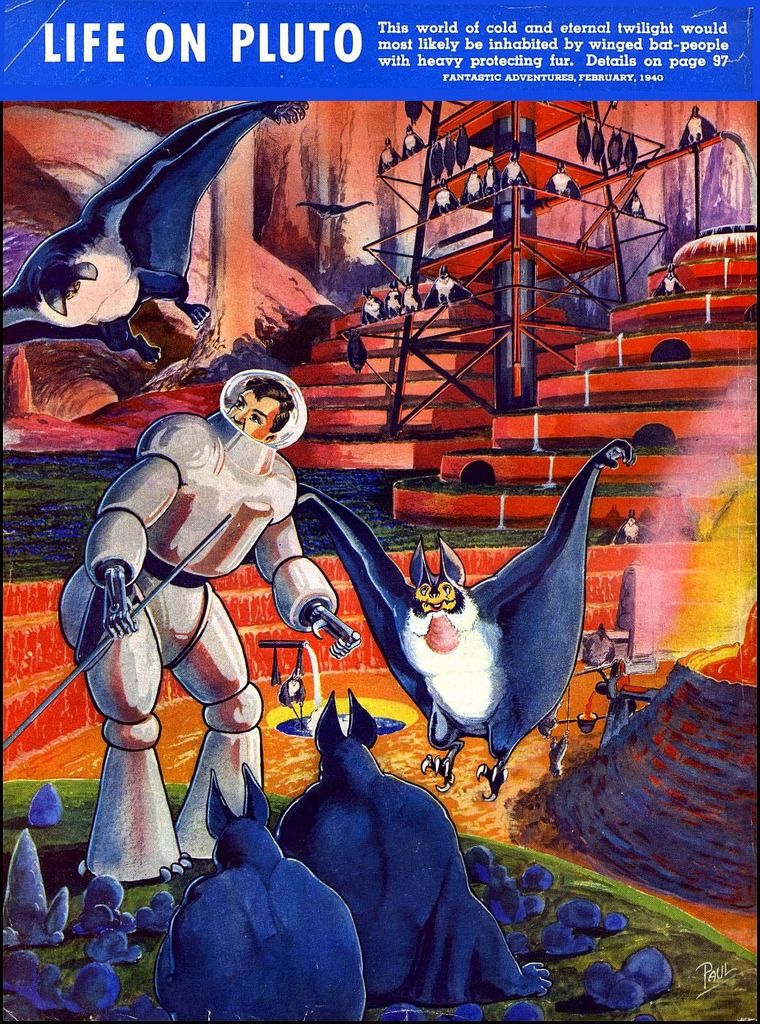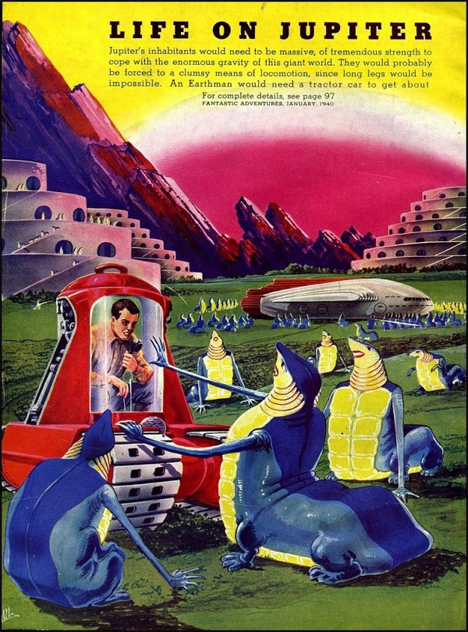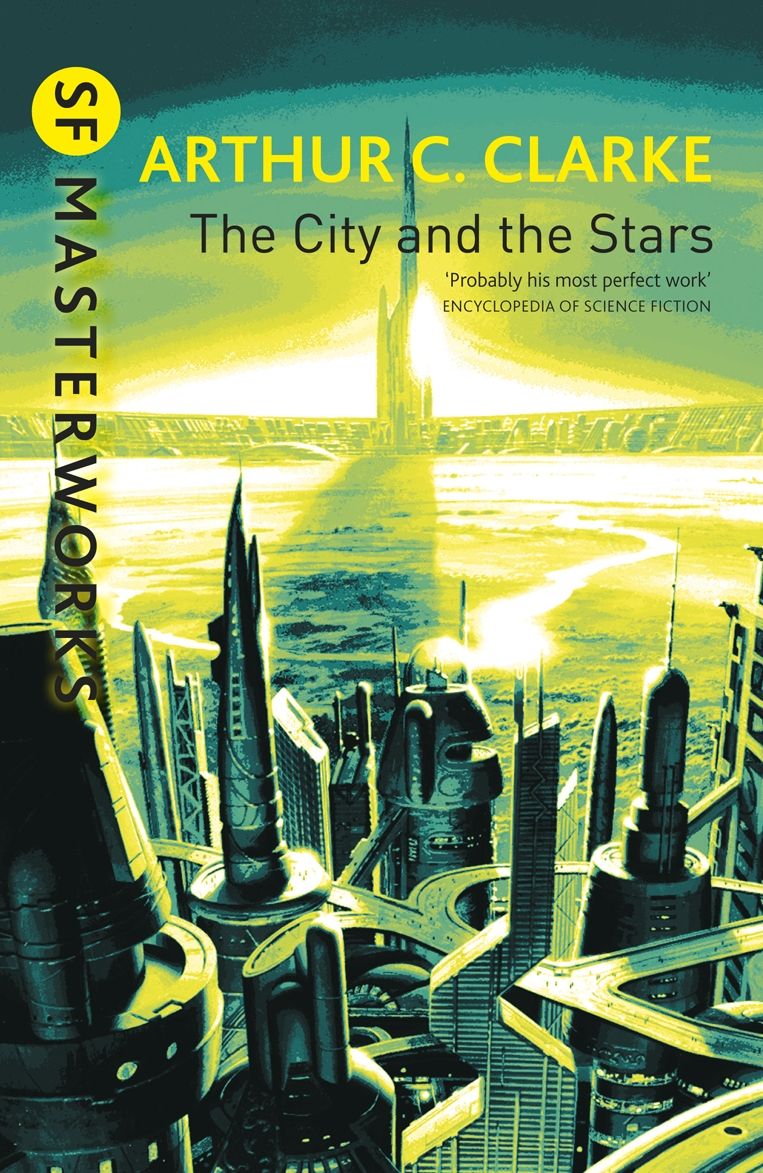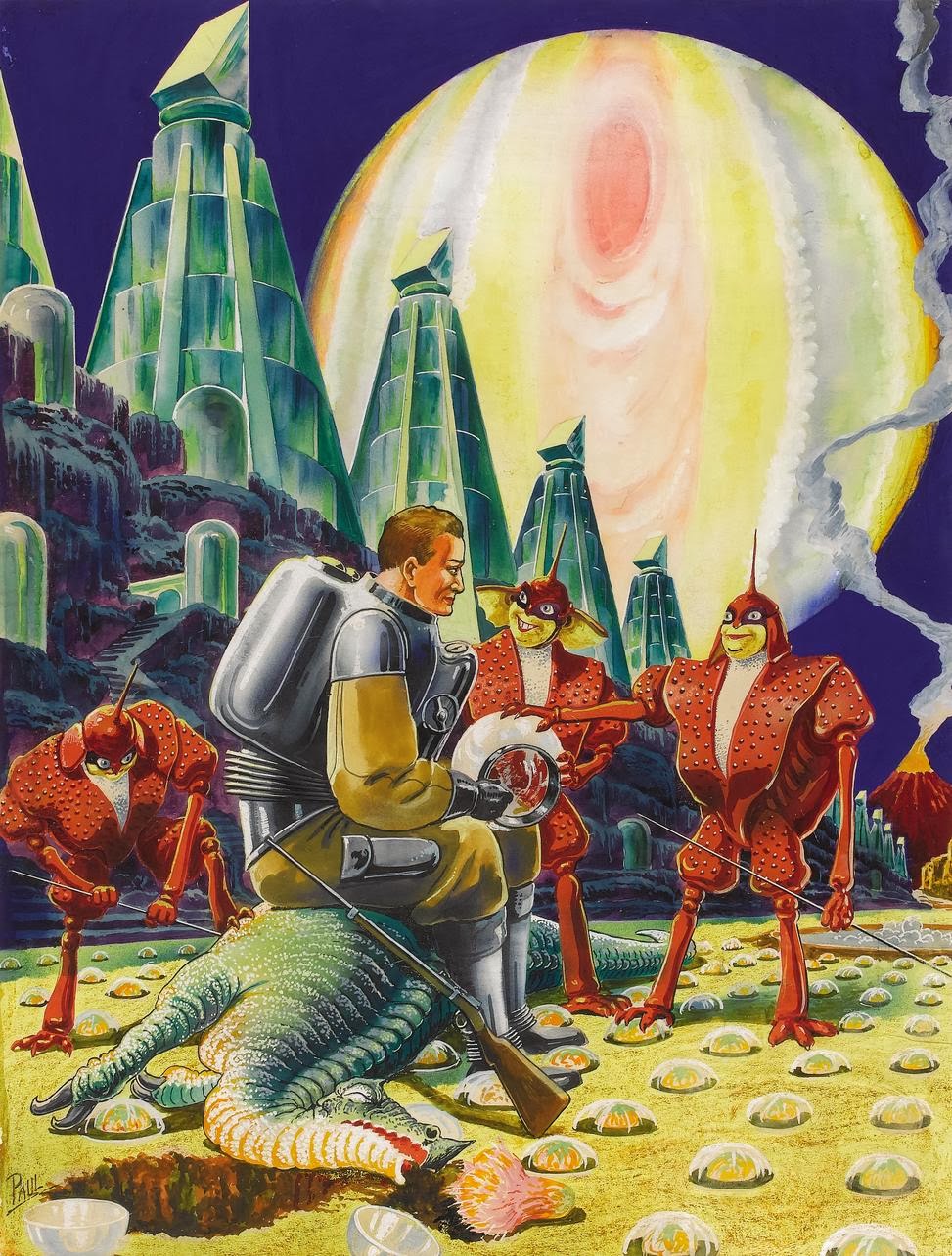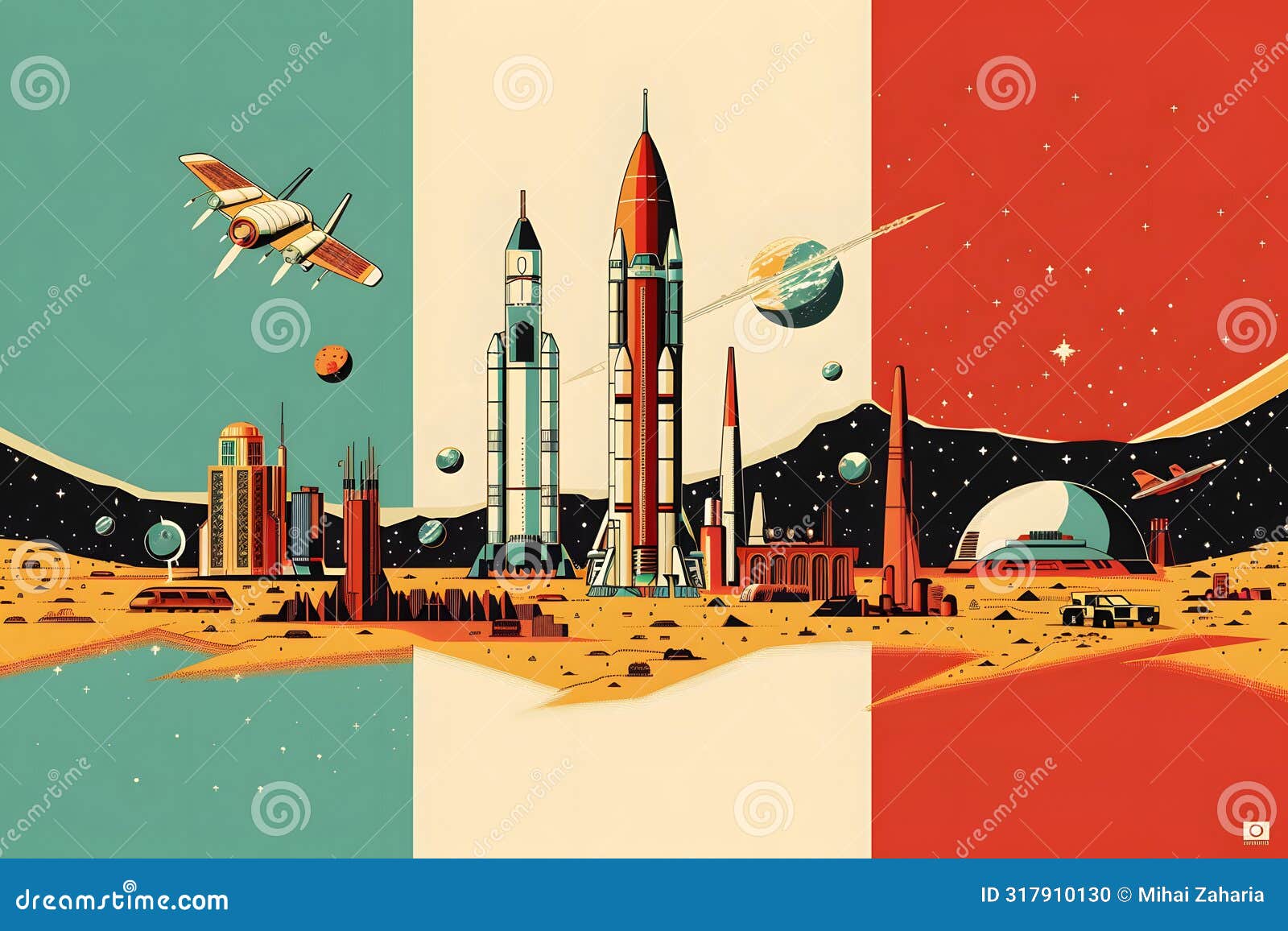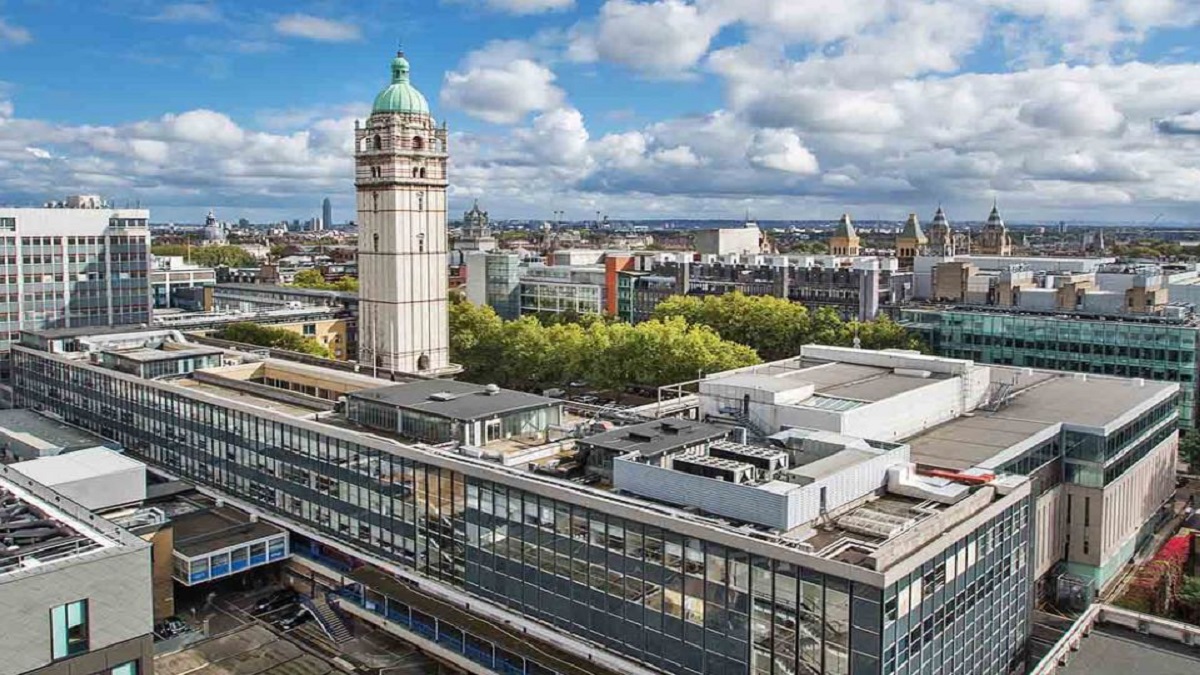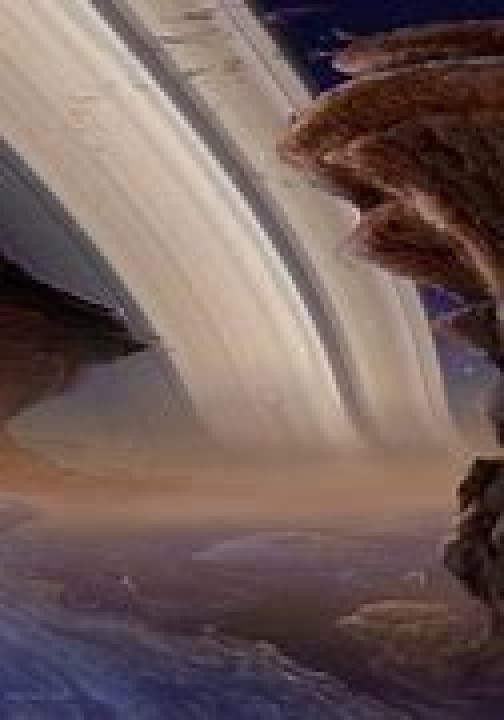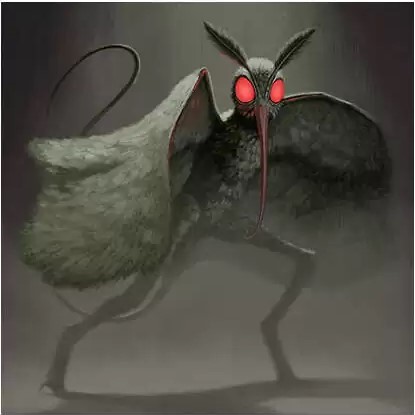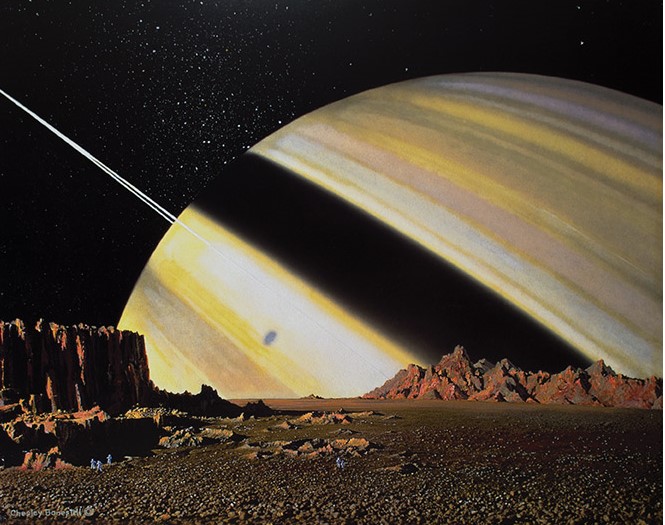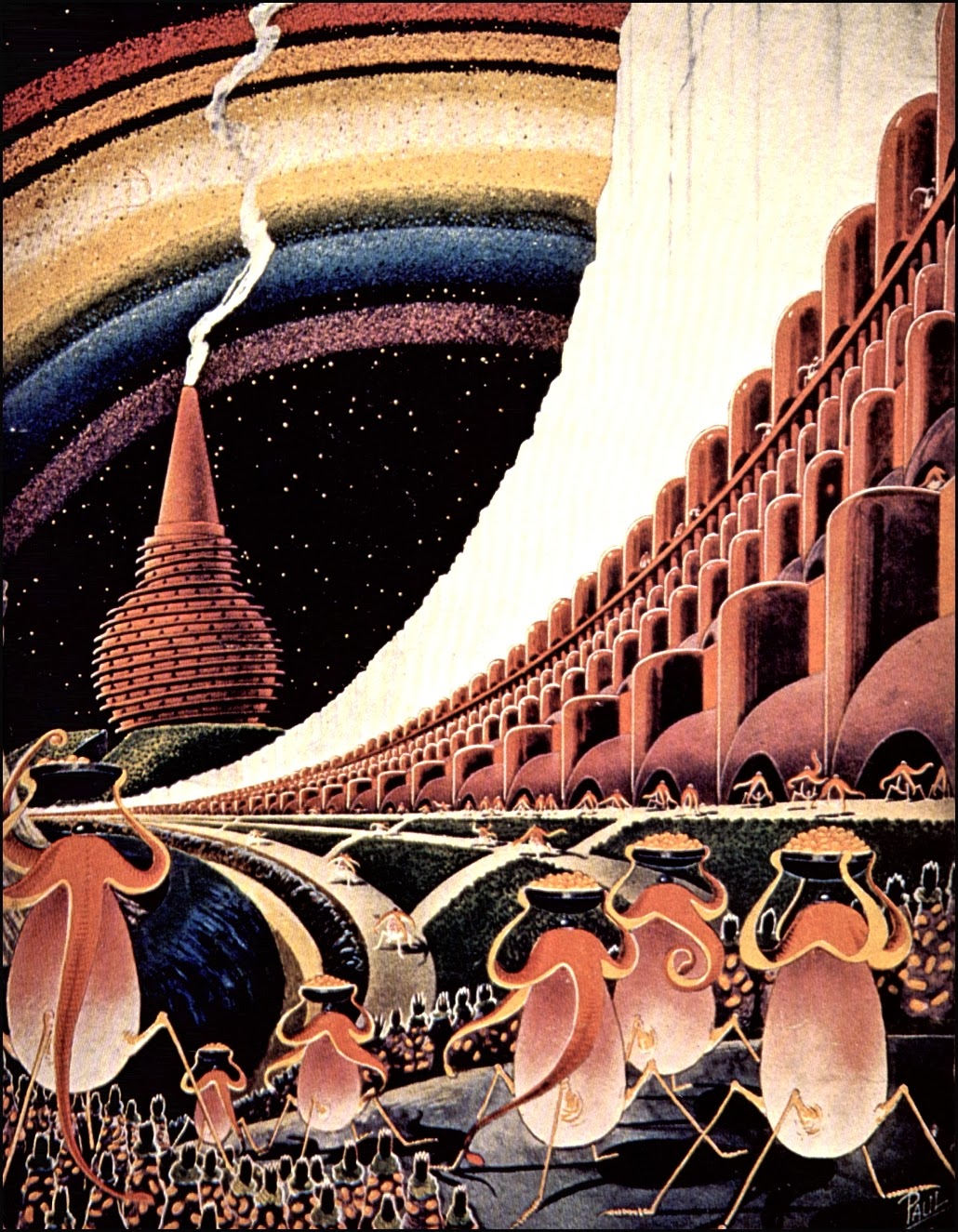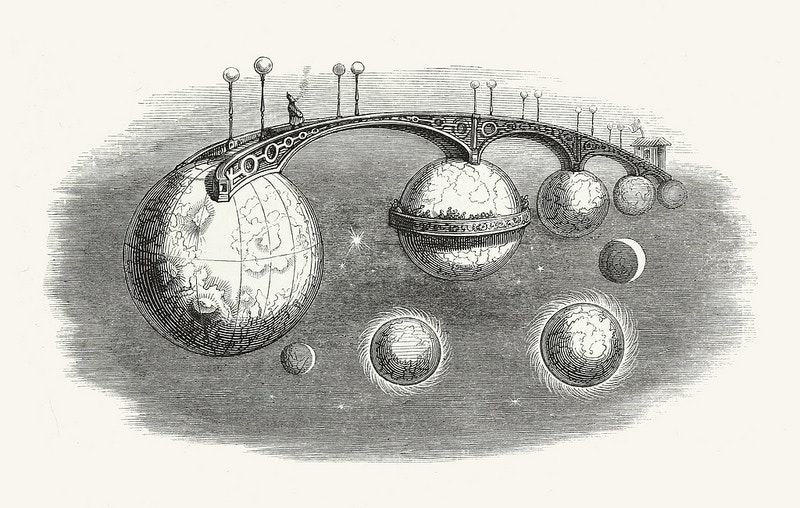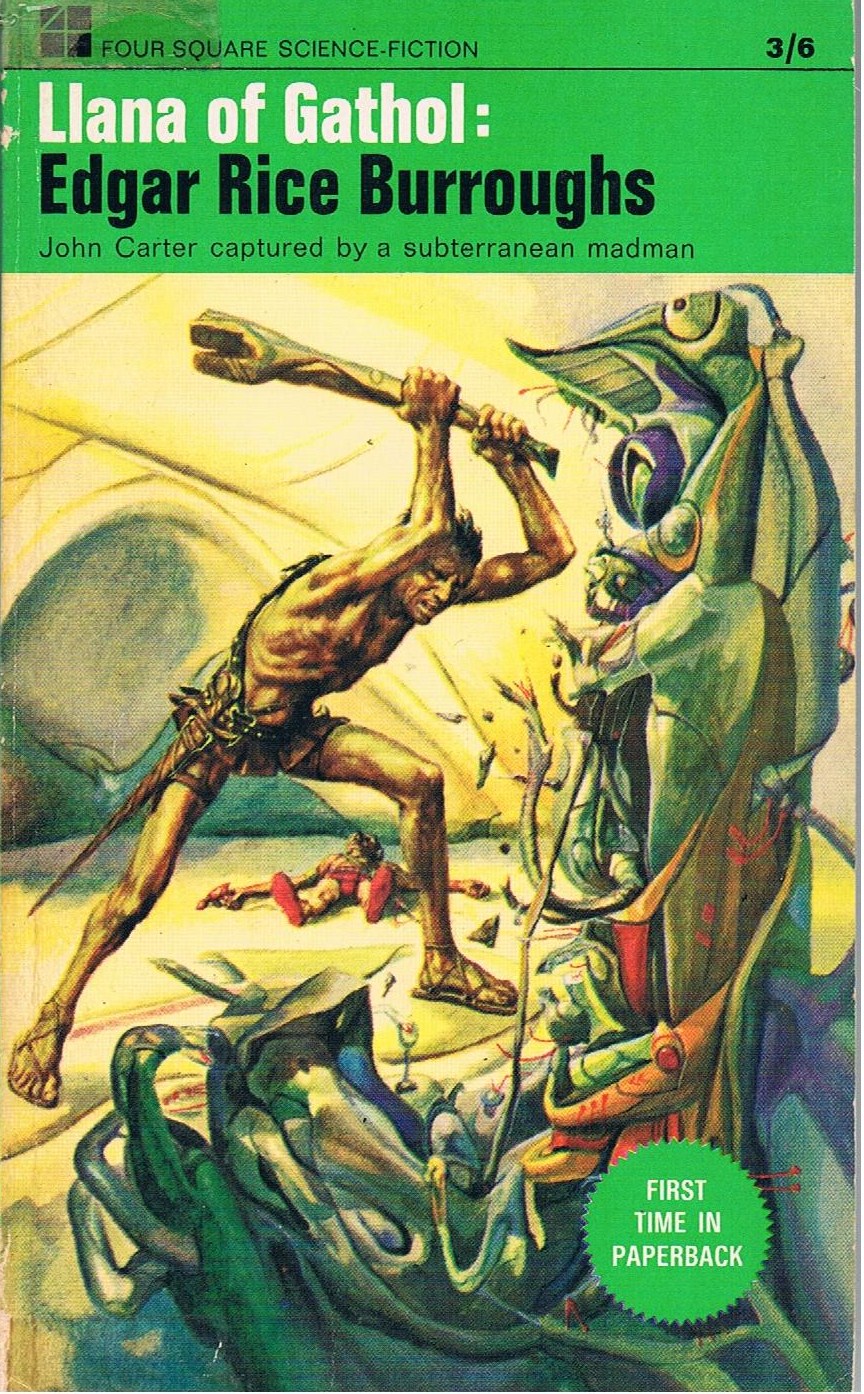what to see on
pallas
[ + link to: Promising Pallas ]
For a scenic view, and an answer-page for Guess The World...
flashing past pallas
...Pallas swung round in their field of vision, and there was a fleeting glimpse of sun-lit spires of mountains, shadowed valleys, and mysterious crevasses from which clouds of steam and yellow vapour curled. Still it seemed they must crash against one of those slender pinnacles. Nearer it came like a flash; a dizzying blur, now, that drove directly in their straining faces.
And then, abruptly, it was gone. Already thousands of miles astern, the danger was past...
Harl Vincent, The Copper-Clad World (Astounding Stories, September 1931)
survival-training on pallas
He
withdrew his knife from his pack and examined the nearest fungus. Of
course, it wasn’t truly a fungus, that was an earthly form of life, but
this... blurred
the line between single organisms and colonies...
resembled a mesh between the two... Should one be hurt or damaged, the others
could pick up its slack until it was healed, as each possessed the
necessary biological machinery.
This, incidentally, was what made the zuff so fearsome. As its
unfortunate discoverer, Viron Zuff, had learned, a bullet would not stop
it as long as enough of its “nodes” remained unharmed. Some of those
nodes, particularly its thrasher-tentacles, were devastatingly
dangerous.
Cutting into the fungus, he managed to remove a piece that seemed
suitably dry for burning. Since he had no idea what growth would most
easily light, he decided to hedge his bets and collect some of
everything, the grass, the shrubs, a crawling vine and some others, and
test each one with his magnesium lighter.
An hour later the sun was plunging below the horizon, and the ground
was covered in a thin frost everywhere except a wide circle around
Raker’s crackling fire. Sitting near it made him feel secure, and as he
lay with his head resting on his pack he thought again of the situation
the Patrol had left him in. I hope there’s open water somewhere out
here; so far everything seems to get its water from the ground, or
perhaps the air, neither of which do me any good. But I can’t waste time
every day searching for springs, not when the sun’s only up for four
hours. Or perhaps nobody survives this test and the Patrol is staffed by
corpses. He grinned, remembering some of his colder, less animated instructors...
Robert Gibson and Dylan Jeninga, Peril on Pallas
native uprising on pallas
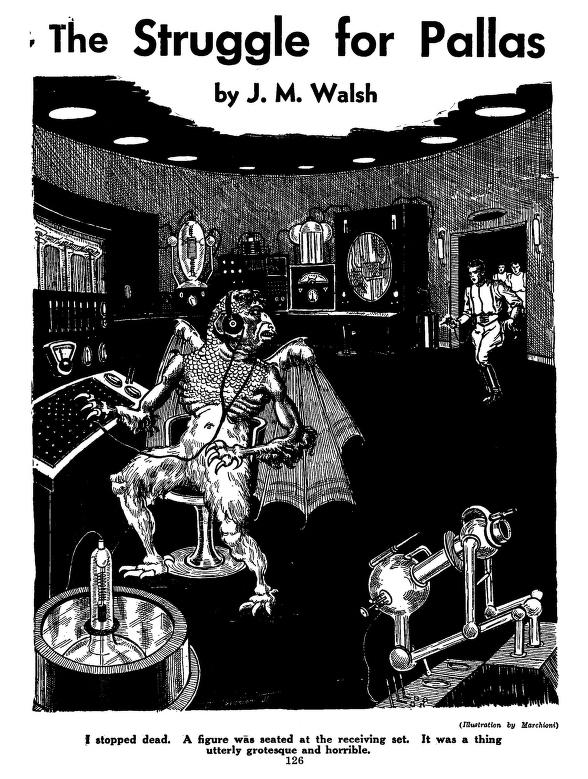
From the top of the cliffs we could see across the plain to the neighboring city of Clion, a place of some five thousand inhabitants, and the chief town of Pallas. Its roof tops glittered in the sun, but save for the fact that it had a curiously deserted appearance we could at first see nothing out of the ordinary. Then what I had taken to be a shimmer in the air resolved itself into a wisp of smoke. It thickened as we watched, seemed curiously thickened with tongues of flame.
But that could wait. The Guards' quarters were our immediate concern.
We entered into the main room, where communication with the planets was maintained.
I was leading, but I stopped dead on the threshold with a stifled exclamation, and an odd feeling of horror constricting my throat. A figure was seated at the receiving set, head-phones over its ears, and fingers straying over the bank of keys in front of it.
For the moment, so utterly unprepared was I for what I saw, I imagined it must have been a Guard. It was not. It was a thing so utterly grotesque and horrible that I can scarcely find words to describe it. It was a biped of sorts, though it seemed to be covered with some kind of bark-like scales. Its feet ended in claws; its fingers were hook-like.
One of the men exclaimed at the sight. The creature must have had remarkably quick hearing, for it turned in a flash, baleful green eyes stabbing at us like heat-rays. We recoiled in horror. It was the gargoyle of the medieval world come to life, only a hundred times more horrible and more intelligent-looking than anything the mind of man had ever conceived.
I raised my pencil ray tube, and pressed the button. The tiny ray stabbed out and impinged on the creature's breast. There came a little puff of smoke and a queer fetid odor, but beyond that the thing seemed unharmed. Its next move was made so quickly that it caught us almost unprepared.
Of a sudden it seemed to launch itself from the sitting position it occupied...
J M Walsh, The Struggle for Pallas (Wonder Stories Quarterly, Fall 1931)
partially terraformed pallas
Pallasport
was a fleck of life on dead Pallas. A raw frontier town, on a
mountain peak that the spatial engineers had drilled for paragravity and
wrapped in a thin wisp of synthetic air. A new, gaudy, flimsy,
brawling town of rootless adventurers...
...Rick filled his lungs with the thin, clean air and looked around him eagerly. The standing ships were a forest of tapered silver trunks, and they seemed to lean crazily apart, with those at the edge of the field jutting out insanely toward the stark desolation of Pallas, toward the wild crags of broken stone and black pits of airless shadow – because only this mountain and not the whole planetoid had been drilled for paragravity, one speck of life on a world still dead.
…Rick’s eager eyes scarcely saw that deadly desert of naked rock and savage cold and deadly nothingness that the dying power of fission had failed to tame, for in his mind it had already been transformed with the might of reacting seetee. In the hands of the spatial engineers, that unlimited energy could clothe all the broken stone of Pallas in air and warmth and transplanted life…
Jack Williamson, Seetee Ship (1951, 1968)
>> Guess The World - Third Series
jungles, deserts and pirates on pallas
...The explorers’ accounts described much of the creeping jungles of rootless trees; of the Red River, whose waters are bright crimson because of their sediment of brilliant sands, and the Red Lake into which they empty; of the Poison Lake and the blasted region around it called the Poison Desert, in which live certain animals that have adapted themselves to the toxic environment; of the so-called Ghost Hills in the north, made terrible by the Man Spiders, which were arachnid creatures of great size and ferocity whose unusual intelligence and cunning earned them their name.

But, after the first interest in these accounts of exploration, Pallas was largely forgotten by the System peoples for some years. The planetoid was hard to reach, lying as it did at the center of a dangerous region of meteor swarms and smaller asteroids. No settlement on it was attempted, for it had no valuable mineral resources to tempt Earth prospectors and promoters.
But the very isolation and inaccessibility of Pallas attracted another class – the space-pirates. Those were the wild early days of interplanetary travel.
The Planet Patrol had not yet been organized, and ships carried valuable cargoes from world to world without protection. It was inevitable that piracy should spring up, and that the location of Pallas would make it an ideal base for the corsairs…
Article The Pirates' Planet in Captain Future, Winter 1943
>> Guess The World - Fourth Series
midget rock-eaters of pallas
He
was in the native quarter, at the planetoid's core, where the
asterites were as thick as red dust on Mars—and for the first time
Mac saw a Kiddie policeman. He was wearing no more clothing than the
rest of his kind, just carried a staff of office, like the old Bow
Street Runners.
An idea suddenly made contact in MacCauley's mind. He signaled the
officer and dragged out a notebook and pencil, unnecessarily, as it
happened. The Kiddie, in sinuous gestures, signified that he could
understand English, partly by lip-reading, partly by picking up the
sound in some weird fashion through rock-conduction and the sensitive
soles of his splay feet.
Mac, enunciating carefully, spoke.
"One of your people has robbed me. I want him arrested. Where do I go?"
The Kiddie bobbed his head, and from the manner in which his
luminiferous glands sparkled balefully, it was evident where he thought
MacCauley should go. Nevertheless, he snapped out his little pad and
stylus, and scrawled: "Commi wih me tu Offic he wil arange arest."
MacCauley deciphered the scribble. He shrugged and said, "Okay. Hop to
it, sonny." He walked beside the diminutive policeman for a few hundred
feet, glancing incuriously at the small burrows which pierced the rock
walls and kicking away chunks of the queer, spongy rock on which the
Kiddies subsisted, the equivalent of Earthly garbage...
Dirk Wylie, Asteroid of the Damned (Planet Stories, Summer 1942)
>> Guess The World - Sixth Series
Comment from contributor Lone Wolf:
A short story, which according to the bibliography was written in co-authorship with Frederik Pohl. There aren't many details about the asteroid and its inhabitants called "Kiddies" who are the size of children and somehow can live in vacuum. Otherwise it follows the stereotypical notion about the asteroids being a kind of "grey zone", which serves as a refuge for outlaws and gamblers:
"Like everything else in Pallas, it was completely underground, with a purely artificial atmosphere. Artificial, in fact, was the word for Pallas. Everything about it was synthetic; there wasn't a figment of reality to be found in it. All that Pallas had to offer visitors was freedom from most of the more pressing laws of the more civilized—and larger—worlds. That, and the Kiddies, the peculiar race that had been found on the small asteroid when the first space-explorers got there..."
"...They don't really eat anything. They drink some kind of stuff they find in the rocks—like they used to find petroleum, on Earth. Radioactive, this stuff is. That's all they need to live on. They don't breathe at all. You can see that; they don't even have a mouth or a real nose, just a sort of trunk that they drink through..." (...) "I asked one of them once—he wrote out an answer, the way they always do when they want to tell you something. Seems they generate electricity in their bodies. A Palladian's idea of a real good time is to take a hunk of pure copper and hold it in his hands. The current runs from one hand to the other. They are like that. This one claimed that each metal gave them a different kind of thrill".

















